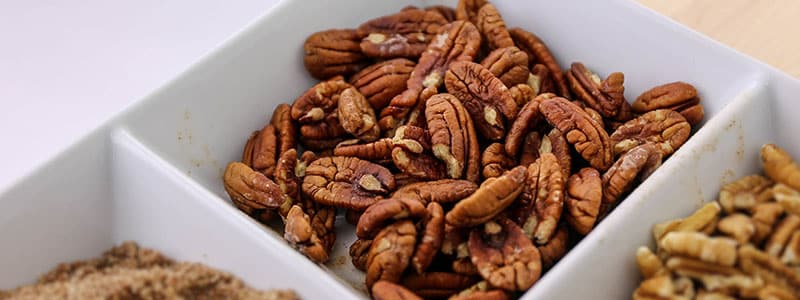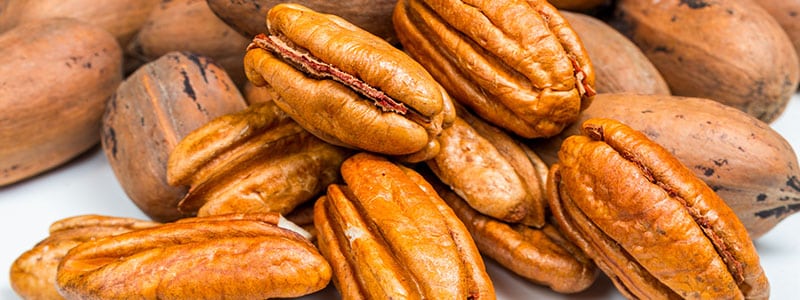Nutty Pecan Facts
Learn more about pecans in this video including these top tips:
- Roast them to add flavor
- Store properly to make them last longer
- Save money with pieces (especially if you are using a recipe that calls for pieces)

American Made
The U.S. produces about 80 percent of the world’s pecan crop.

Varieties
There are over 1,000 varieties of pecans. Many are named for Native American tribes, including Cheyenne, Mohawk, Sioux, Choctaw and Shawnee.

Sizes
Pecans come in a variety of sizes – mammoth, extra-large, large, medium, small and extra small. They also come in several forms including whole pecans, pecan halves, pieces, granules and meal.

Heart Healthy
Since 2012 The American Heart Association®’ has certified select pecan halves and pieces as heart healthy food.

Availability
Pecans are now more accessible than ever before. You’ll find them at your favorite grocery store, local farmer’s market or restaurant.

Production
Some of the larger pecan shellers process 150,000 pounds of pecans each day. That’s enough to make 300,000 pecan pies!

Process
Before a shelled pecan is ready to be sold, it must first be cleaned, sized, sterilized, cracked and finally, shelled.

Albany, GA
Albany, Georgia, which boasts more than 600,000 pecan trees, is the pecan capital of the U.S.

Naturally Nutritious
Pecans are naturally nutritious containing 14 vitamins and minerals in a single serving.

Magnificent Tree
It takes a magnificent tree to produce a great-tasting nut. Pecan trees usually range in height from 70 to 100 feet, but some trees grow as tall as 150 feet or higher. Native pecan trees – those over 150 years old – have trunks more than three feet in diameter.

Texas
Texas adopted the pecan tree as its state tree in 1919. In fact, Texas Governor James Hogg liked pecan trees so much that he asked if a pecan tree could be planted at his gravesite when he died.

FDA
The U.S. Food and Drug Administration (FDA) has acknowledged and approved the following qualified health claim: “Scientific evidence suggests, but does not prove, that eating 1.5 ounces per day of most nuts, such as pecans, as part of a diet low in saturated fat and cholesterol, may reduce the risk of heart disease.”

